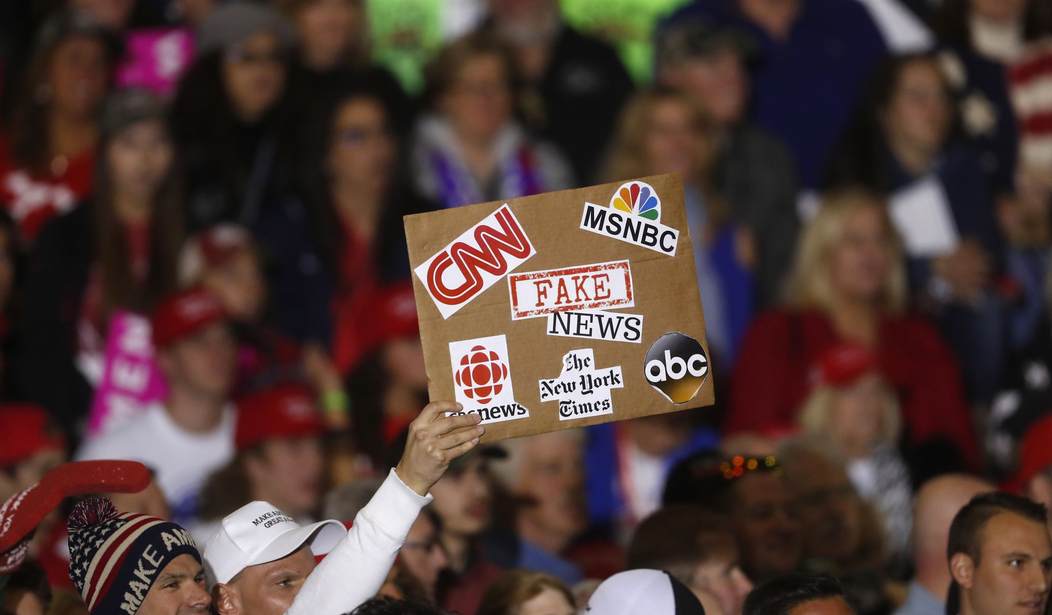This one will be interesting.
Authors Hemant Kakkar and Asher Lawson, a professor and student at Duke University, respectively, penned a piece for Politico in which they reported on the results of a study they recently conducted that was designed to identify the group that was most likely to share “misinformation” online. Now, we already know that, for these folks, the definition of “misinformation” typically means “opinions with which we disagree.”
But let’s put that to the side for a minute.
The authors claim to have discovered who is most likely to share false information online related to issues like COVID-19, vaccines, the 2020 election, and others. It is not shocking that the authors point to conservatives as being the prime purveyors of fake news. But in a surprising moment of intellectual honesty, they acknowledge that blaming most Republicans or conservatives for the dissemination of misinformation is an “oversimplified” and “misguided” generalization. They write:
In newly published research, we found that it’s not conservatives in general who tend to promote false information, but rather a smaller subset of them who also share two psychological traits: low levels of conscientiousness and an appetite for chaos. Importantly, we found that several other factors we tested for — including support for former President Donald Trump — did not reliably predict an inclination to share misinformation.
According to the researchers, their “findings suggest it is misguided to assign blame for misinformation to the political right broadly,” and they acknowledge that using these arguments “risks increasing polarization.”
Instead of blaming the conservative movement as a whole, the authors suggest it is more “productive” to focus on what they call “low-conscientiousness conservatives” (LCCs). But then they write:
To be clear, existing research has found that conservatives have a greater tendency toward misinformation than liberals do. For example, during the 2016 election, individuals who leaned conservative were more likely to engage with and share disinformation on Twitter and Facebook. Likewise, in the early months of the pandemic, conservatives were more likely to believe Covid-19 was a hoax, and to downplay the virus’ severity.
After concluding that conservative ideology doesn’t explain why one might spread false news stories, the researchers decided to “investigate the role personality traits might play” and focused more on conscientiousness, which they define as “the tendency to regulate one’s own behavior by being less impulsive and more orderly, diligent, and prudent.” Their working hypothesis was that conservatives “with lower levels of conscientiousness would be more inclined to spread fake news and that there would be no difference between highly conscientious conservatives and their liberal counterparts.”
It appears the authors’ findings were in accordance with their original hypothesis; low-conscientiousness conservatives were far more likely than those who fell into the other groups to share misinformation. “On average, they were 2.5 times more likely to share misinformation than the combined averages of the other three groups,” the authors wrote.
The researchers also sought to discover what motivates LCCs to share fake news stories and realized it had nothing to do with “support for Trump, time spent on social media, distrust of the mainstream media,” or even “endorsement of conservatives social and economic values.”
Instead, they found that the “only reliable explanation was a general desire for chaos – that is, a motivation to disregard, disrupt, and take down existing social and political institutions as a means of asserting the dominance and superiority of one’s own group.”
The article continued:
Participants indicated their appetite for chaos by using a scale to express how much they agreed with statements like, “I think society should be burned to the ground.” For LCCs, we concluded, sharing false information is a vehicle for propagating chaos.
The authors then attempted to determine whether LCCs can be prevented from sharing fake news stories. They noted that fact checks on social media did not tend to deter the behavior. “LCCs continued to share fake news stories at a higher rate compared with liberals and high-conscientiousness conservatives, despite being told the news was inaccurate,” they explained.
In the end, they conclude that the “onus fall primarily on social media companies” to deal with the problem. While the authors do not outright recommend more censorship, it is not difficult to discern where leftists would love to take this, right?
But, as always with articles of this type, there is something important missing. The authors indicate in the article that they conducted this study because misinformation is a serious issue that should be addressed. Indeed, most of us would agree.
However, while they acknowledge that most conservatives are not in the business of sharing fake news, they fail to consider the false news stories perpetuated by our mainstream activist media that are shared on social media on a daily basis. They take it for granted that outlets like CNN – which has repeatedly been caught reporting fake news stories – are not a pernicious force in American society.
Yet, left-wing media activists working at places like MSBNC, The New York Times, The Washington Post, ABC News, and several others routinely skew their reportage in a way that is clearly designed to favor the left — even if it means deceiving their audience. This behavior is even more egregious than the fake news shared by conservatives because it has a level of credibility behind it.
Fake news stories insisting former President Donald Trump called Nazis “fine people” are dangerous to society. Deceptively telling the public that a group of MAGA hat-wearing high schoolers was bullying an old Native American man is dangerous to society. Reinforcing the notion that white racist police officers are actively hunting down and shooting innocent, unarmed black men every day is dangerous to society. Telling the American public that the 2016 presidential election was stolen for Trump by the Russian government is dangerous to society.
Most of the false narratives distributed by these left-wing propaganda mills are a significant part of the division America is experiencing right now. If the researchers truly wished to mitigate the damage that fake news causes, they would not only focus on low-conscientiousness conservatives. They would also examine how the charlatans disguising themselves as reporters are also harming society.
The fact that mainstream activist media outlets have far more reach than some LCCs sharing conspiracy theories about vaccines on Facebook should motivate folks like these researchers to look at the real fake news culprits. But perhaps performing a study on this matter isn’t quite as lucrative as blaming chaos-loving right-wingers. After all, most academics would prefer to remain employed, wouldn’t they?














Join the conversation as a VIP Member